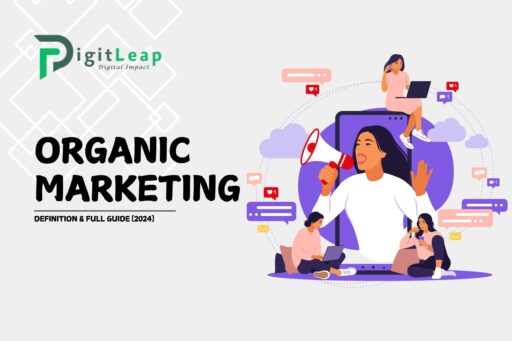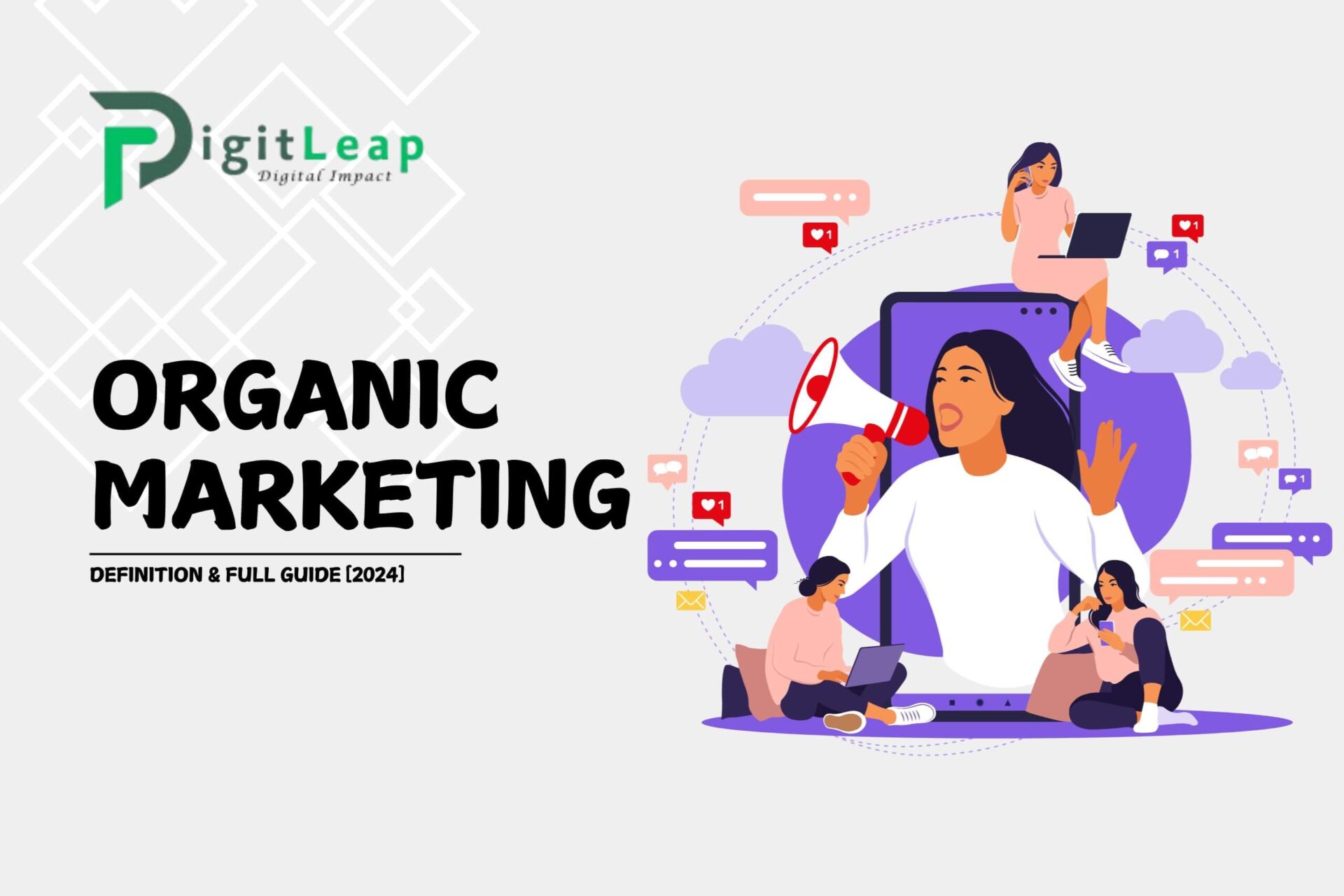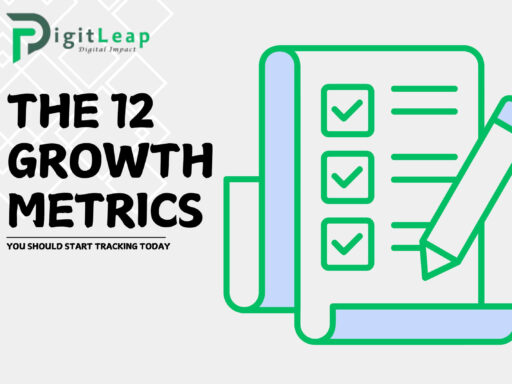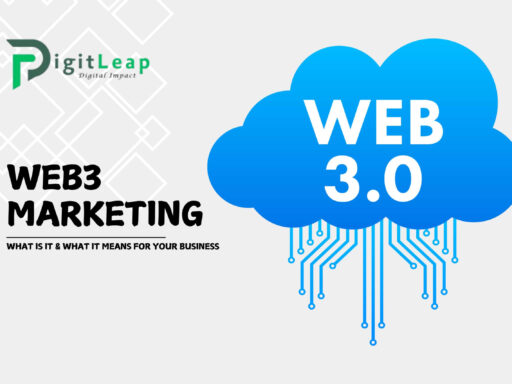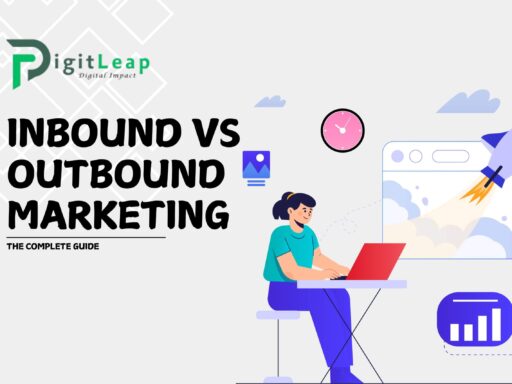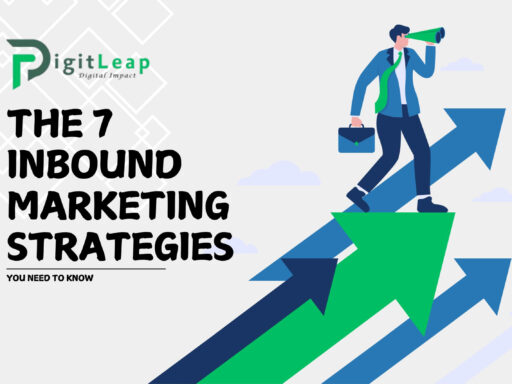Organic Marketing: Definition & Full Guide [2024]
In today’s digital age, marketing strategies come in all shapes and sizes, but one that continues to stand out is organic marketing. While paid advertising has its place, organic marketing offers long-term sustainability and growth without the need for constant financial investment. In this guide, we’ll dive deep into the definition of organic marketing, its benefits, key strategies, and how it can drive your business’s growth in 2024.
What is Organic Marketing?
Organic marketing refers to any marketing efforts that occur naturally without paid promotion. In essence, it involves attracting traffic and customers through content, social media, SEO, and other strategies that build trust and credibility over time. Instead of buying ads, organic marketing focuses on earning traffic through valuable, relevant, and high-quality content.
Examples of Organic Marketing:
- Search Engine Optimization (SEO): Ranking your website or blog higher on search engine results pages (SERPs) through optimized content.
- Content Marketing: Writing blogs, creating videos, podcasts, or infographics that attract visitors naturally.
- Social Media Marketing (Without Ads): Engaging with your audience through social media platforms like Instagram, Twitter, or LinkedIn without using paid ads.
- Email Marketing: Building a loyal email list through organic methods such as lead magnets or content marketing, rather than paying for subscribers.
Why Organic Marketing Matters in 2024
As digital marketing becomes increasingly competitive, consumers have grown more skeptical of paid ads. They tend to trust brands that provide value through authentic content and organic engagement. This makes organic marketing a powerful tool for businesses looking to build genuine relationships with their customers. Additionally, with the rise of privacy regulations and ad-blocking technology, businesses may find it harder to rely solely on paid advertising.
Long-Term Growth
One of the biggest advantages of organic marketing is that it’s not limited by budgets. Once you’ve created high-quality content, it can keep attracting traffic and leads for months or even years without additional investment.
Builds Brand Authority
Organic marketing allows businesses to position themselves as experts in their field. By offering helpful and educational content, businesses can earn the trust and loyalty of their audience, which eventually turns them into customers.
Cost-Effective
Compared to paid advertising, organic marketing is much more affordable. While it requires time and effort to create content and build an audience, there’s no recurring cost as with paid ads.
Increases Customer Loyalty
When customers find value in your content and trust your brand, they are more likely to engage with you in the long run. Organic marketing fosters loyalty by consistently offering useful, relevant, and trustworthy information.
Organic Marketing Strategies to Implement in 2024
To make the most out of organic marketing, businesses must focus on several key strategies that will yield the best results. Here are some proven organic marketing tactics that you should consider implementing in 2024.
1. Search Engine Optimization (SEO)
SEO is the backbone of organic marketing. By optimizing your website for search engines, you can increase your visibility, drive organic traffic, and rank for relevant keywords. This involves:
- On-Page SEO: Optimizing your content, meta descriptions, headers, and internal linking for relevant keywords.
- Off-Page SEO: Building backlinks from reputable websites to boost your authority.
- Technical SEO: Ensuring your website is fast, mobile-friendly, and easy for search engines to crawl.
2. Content Marketing
Content marketing is all about creating valuable and engaging content that solves the problems of your audience. This could be through blogs, videos, podcasts, or even webinars. In 2024, the focus should be on:
- Educational Content: Offering tutorials, how-to guides, or industry insights.
- Visual Content: Incorporating videos, infographics, or visual stories, as these tend to get higher engagement.
- Long-Form Content: Creating in-depth articles and resources that establish you as an authority in your niche.
3. Social Media Engagement
Organic social media marketing revolves around engaging with your audience, posting regularly, and encouraging interaction. Instead of pushing ads, brands should:
- Create Shareable Content: Posts that people want to share organically, such as memes, stories, or tips.
- Engage with Followers: Respond to comments, messages, and share user-generated content to build relationships.
- Use Hashtags Wisely: Optimize your reach by using relevant and trending hashtags to target a broader audience.
4. Email Marketing
Although email marketing is often seen as an old-school method, it’s still highly effective when done organically. Build an email list by offering valuable content, such as eBooks or newsletters. Focus on:
- Segmentation: Sending targeted emails based on user preferences or behaviors.
- Personalization: Addressing your audience by name and tailoring content to their interests.
- Providing Value: Offering exclusive insights, discounts, or content that isn’t available anywhere else.
5. Influencer Marketing (Organic)
Collaborating with influencers doesn’t always require paid partnerships. Some influencers, especially micro-influencers, are willing to promote products or services in exchange for free products, experiences, or value exchanges. This helps boost credibility and reach, all without paying for ads.
6. User-Generated Content (UGC)
UGC refers to content created by your customers or followers. This could be in the form of reviews, testimonials, or even social media posts where users tag your brand. UGC can significantly boost trust and credibility, as people tend to believe in the experiences of other users.
7. Community Building
In 2024, building an engaged community around your brand will be crucial. Platforms like Facebook groups, LinkedIn communities, or even Reddit threads allow you to gather loyal followers who share common interests. Engage with your community regularly by offering value, answering questions, and fostering conversations.
Challenges of Organic Marketing
Organic marketing comes with a few challenges. It’s important to be aware of these so that you can plan effectively and manage expectations.
Time-Consuming
One of the main drawbacks of organic marketing is that it takes time. Building traffic, trust, and authority organically doesn’t happen overnight. Businesses need to be patient and consistent with their efforts.
Competition
As more businesses recognize the value of organic marketing, competition for keywords, visibility, and engagement increases. To stand out, your content must be unique, high-quality, and valuable to your audience.
Requires Expertise
While organic marketing can be cost-effective, it does require a certain level of expertise. Whether it’s mastering SEO, writing compelling content, or understanding social media algorithms, businesses need skilled marketers to execute effective organic campaigns.
FAQ’s
Q1. What’s the difference between organic and paid marketing?
Organic marketing focuses on generating traffic naturally without paid promotion, while paid marketing involves purchasing ads to drive traffic quickly. Organic methods are long-term, while paid marketing delivers immediate results.
Q2. How long does organic marketing take to work?
Organic marketing can take several months to show results, depending on your industry and competition. Consistent effort is key to achieving sustainable growth over time.
Q3. Is organic marketing more effective than paid marketing?
Both organic and paid marketing have their advantages. Organic marketing is better for building long-term relationships and trust, while paid marketing offers quicker, short-term results.
Q4. Can small businesses benefit from organic marketing?
Absolutely. Organic marketing is particularly beneficial for small businesses as it allows them to attract customers without spending a large amount on advertising. It helps build trust and credibility.
Q5. How do I measure the success of organic marketing?
Success in organic marketing can be measured through various metrics, including website traffic, keyword rankings, social media engagement, and lead generation. Tools like Google Analytics and SEMrush are useful for tracking performance.
Q6. How can I improve my organic marketing strategy?
Improving your organic marketing strategy involves regularly updating your content, staying active on social media, focusing on SEO, and continuously analyzing your results to make data-driven improvements.
Conclusion
Organic marketing is essential for businesses that want to build sustainable, long-term growth. By investing time and effort into creating valuable content, engaging with your audience, and optimizing your website for SEO, you can attract traffic and customers without relying on paid advertising.
At DigitLeap, we specialize in helping businesses develop effective organic marketing strategies that drive real results. Whether you need help with SEO, content marketing, or building a loyal social media following, we’re here to guide you every step of the way.

